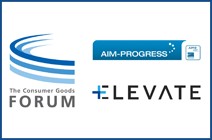 On September 25th, The Consumer Goods Forum (CGF) held its first “Responsible Operations & Sourcing” conference, in partnership with AIM-PROGRESS and ELEVATE, in Bangkok, Thailand. The event brought together over 220 business partners of the CGF and AIM-PROGRESS members. Suppliers, service providers, stakeholders and buyers joined to learn more about the consumer goods industry’s responsible sourcing expectations and to raise awareness around the CGF’s Forced Labour Priority Industry Principles and how they can be successfully implemented into business operations. Presentations from a mix of organisations allowed participants to hear from multiple perspectives on why and how to address the core drivers of forced labour.
On September 25th, The Consumer Goods Forum (CGF) held its first “Responsible Operations & Sourcing” conference, in partnership with AIM-PROGRESS and ELEVATE, in Bangkok, Thailand. The event brought together over 220 business partners of the CGF and AIM-PROGRESS members. Suppliers, service providers, stakeholders and buyers joined to learn more about the consumer goods industry’s responsible sourcing expectations and to raise awareness around the CGF’s Forced Labour Priority Industry Principles and how they can be successfully implemented into business operations. Presentations from a mix of organisations allowed participants to hear from multiple perspectives on why and how to address the core drivers of forced labour.
Participating organisations included:
- Cargill
- Central Food Retail Group
- Department of Foreign Affairs and Trade,
Australian Government - Foreign Trade Association
- International Organization for Migration
- Liberty Asia
- Marine Gold
- Mars Petcare
- Royal Thai Embassy
- Thai Union
- The Coca-Cola Company
- The Mekong Club
- Walmart Stores Inc.
Collective Action Drives Positive Change
Pascal Billaud, CEO of Central Food Retail Group set the context for the conference by highlighting the magnitude of the social challenges that the world faces. In 2016, more than 40 million people were victims of modern slavery and for every 1,000 children in the world, there were 4.4 child victims. CGF Social Sustainability Director Didier Bergeret provided insight into the CGF’s work on forced labour and how a simple approach is required to tackle such a complex issue. To personify this, Didier also introduced the CGF’s Forced Labour Priority Industry Principles, which identify three of the most problematic, yet often common employment practices across the world that can lead to cases of forced labour.
Delegates were then treated to two panel discussions and we able to ask questions of those on stage to better understand how and where to get started. During the first session, “Introduction to CGF Social Resolution and its 3 Priority Industry Principles”, attendees explored local and regional challenges, as well as common issues for implementing responsible operations and sourcing. Panellists agreed that there are multiple challenges – but there are common and effective approaches that can be taken by brands and suppliers together. Next up was the Case Studies session, moderated by Kevin Franklin, Senior Vice President at ELEVATE, panellists talked about their company’s experiences and shared their insights. They advised that companies should start with a risk assessment and then develop and implement policies, working with industry partners to enforce it.
Two workshops then put the Priority Industry Principles front-and-centre. Focusing on two of the Principles – “No worker should pay for a job” and “Every worker should have freedom of movement” – delegates came together in smaller groups to discuss how the Principles could be implemented in their own operations and exchanged insights on the recurring challenges they face, as well as ideas for solutions.
When the room came back together, delegates learnt more about how the issue of forced labour is too big for any one company, industry or government to solve by themselves. And, to better understand the role of governments in the region, Andrew Goledzinowski, Australian Ambassador for the Bali Process, was on hand to provide concrete examples of what his government is currently working on to help eradicate forced labour. He presented the Bali Process Government and Business Forum and shared and update on the Australian Modern Slavery Act, which is still being developed.
In closing, the event sent a strong signal to Thai companies about the need to look beyond product quality and price and implement ethical business standards and ensure social compliance of all suppliers. A final panel discussed the issues in detail, reminding delegates of what’s important. Isabelle Aelvoet, Mars Petcare, closed the event with three points: we should always remember why we are doing this, never forget that we do this for our people in the supply chain, and no one should be deprived of dignity and humanity and we should all be treated with respect.
To see a full summary and list of speakers, download the executive summary here.
The CGF looks forward to supporting more events like the “Responsible Operations and Sourcing” conference and will continue to support its members and their supply chain partners as they commit to and implement the Priority Industry Principles and eradicate forced labour from their own, extended operations and global supply chains.
